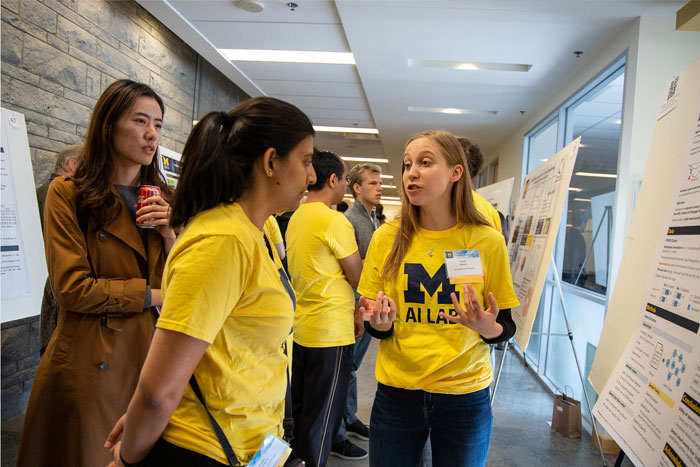How Student-Athletes Are Navigating the Post-Graduation Job Hunt in a Changing Market

As a recent graduate, you’re entering a job market that’s more competitive than ever, and this is especially true for student-athletes who, after years of rigorous schedules balancing sports and academics, now find themselves searching for the next step in their professional careers. Much like students in tech or business, those in athletics are facing an evolving job landscape that demands more than just talent on the field—now, it requires a strategic approach to career-building, networking, and skill development.
For many student-athletes, the transition from college sports to the workforce can feel daunting. After years of dedicating themselves to their sport, many are now faced with the challenge of navigating a job market that’s already saturated with candidates. And while having the discipline and teamwork skills honed on the field is an asset, the reality of securing a job post-graduation is a significant hurdle.
For instance, student-athletes have long been accustomed to setting goals, managing time, and excelling under pressure. However, when transitioning to a professional environment, it’s important to leverage these skills while also being prepared for the tough competition. A former track athlete and recent graduate from a large university, for example, shared that despite her strong academic record and sports accolades, the experience of job hunting was overwhelming and frustrating. “It felt like a constant process of applying, waiting, and hearing nothing back,” she explained, noting that many entry-level jobs required more experience than she had despite having internships under her belt.
One of the first steps for student-athletes is expanding their job search beyond the field. Many colleges have already established resources to help with this transition, but it often takes student-athletes stepping outside their comfort zones and seeking advice from professionals in their desired industries. Connecting with alumni, attending career fairs, and utilizing platforms like LinkedIn can help open doors and create opportunities.
Moreover, with the rise of digital platforms, student-athletes should also be ready to adapt their profiles and resumes to the professional world. While athletic experience is valuable, it’s important to showcase transferable skills—such as leadership, teamwork, and problem-solving—in ways that align with career goals. If pursuing a career in a non-sports-related field, it’s crucial for student-athletes to position themselves as adaptable, hardworking individuals who thrive in high-pressure environments.
As with any transition, the financial aspect can be equally as challenging. Many student-athletes don’t have the same financial cushion as their peers. While scholarships and athletic stipends may have covered their college costs, post-graduation, they’re faced with the pressures of paying for student loans, housing, and other living expenses. To mitigate this, many student-athletes are exploring part-time jobs or freelance work in their field while continuing their job search.
Networking, even after graduation, remains one of the most powerful tools in a student-athlete’s arsenal. A senior at a major university, who plans to go into marketing after graduation, emphasized how important it was to attend industry mixers and alumni events. “It’s all about who you know,” she said. “The more people you meet in your field, the more doors open for you.”
While the job market remains tough for all graduates, especially in the wake of recent economic uncertainties, the drive and determination instilled in student-athletes during their years in college sports can help propel them into successful careers. By embracing a proactive approach to networking, skill-building, and professional development, former student-athletes can harness their athletic experiences to thrive in a new arena.
As Dr. Atul Prakash, a professor at the University of Michigan, advises, “It’s about gaining exposure to the field and getting involved in research. Stay on top of industry trends and use every opportunity to learn more.”
The key takeaway: No matter how challenging the job market may be, those with a solid work ethic, the right mindset, and a willingness to adapt are always in demand. And for student-athletes, the ability to pivot, network, and apply their hard-earned skills will ultimately guide them toward success, no matter the industry.

